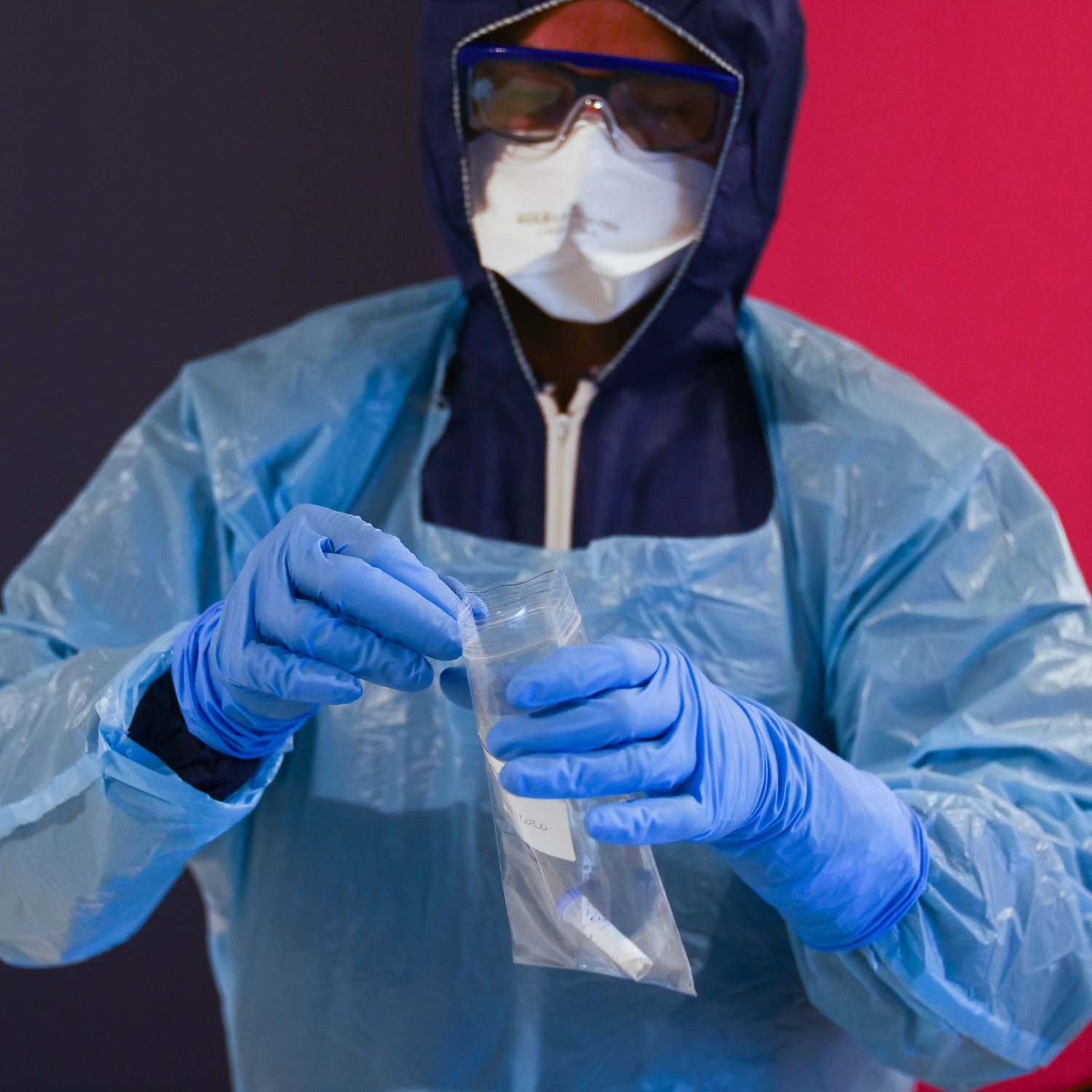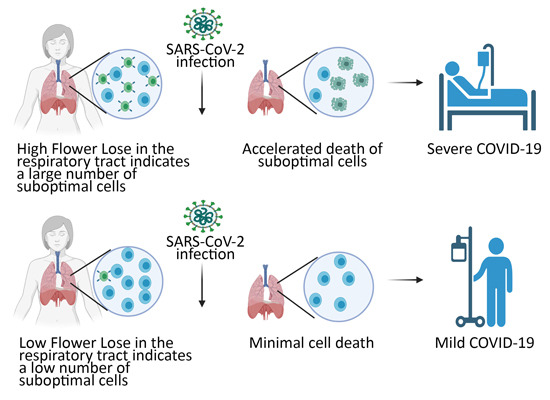During the COVID-19 pandemic, it had quickly become apparent that disease severity is tightly correlated with age. Age, however, is not the only factor. There are multiple cases of older people who were spared and younger individuals who died. A team of international scientists, including Eduardo Moreno, of the Champalimaud Centre for the Unknown in Portugal, decided to investigate the reason for that.
"We study how the body monitors the quality of its cells, a vital process that helps maintain the overall health of the tissue", Moreno explains. "We had previously identified a set of proteins that exist on the surface of cells that work as 'Fitness Markers'. We refer to positive markers as 'Win proteins' and negative ones, which signify poor fitness, as 'Lose proteins'."
When the pandemic struck, Moreno's team was investigating how the expression of Lose proteins changes in the body with age. Their initial results indicated that, on average, the level of Lose proteins increases with age. However, variability was high: some people of the same age group had significantly higher levels than others.
"This finding caught our attention", Moreno recalls. "We thought, could this variance in Lose protein levels explain why COVID-19 prognosis varies so much across individuals?"
To answer this question, Moreno teamed up with collaborators in Switzerland and Denmark. They collected lung and nasopharyngeal samples and analysed the levels of Lose protein using PCR. Their results, published in the journal EMBO Molecular Medicine, were striking.
"The levels of Lose proteins collected with this simple test ended up being a better predictor of an individual's prognosis than any other biomarker, including age", Moreno points out.
Scientists are now studying the mechanism that underlies this phenomenon, which is still unknown. However, the team believes their discovery may have immediate clinical applications.
"This new marker could help determine whether a patient who has just contracted the disease will need closer monitoring or early intervention. It might also have the side benefit of persuading unvaccinated individuals who have high levels of Lose proteins to get vaccinated", he suggests.
According to Moreno, this pertinent finding has even broader implications. "Over the last few decades, we've discovered multiple processes where cell fitness plays a key role, including ageing and cancer. This new insight opens yet another research avenue on the relation between cell fitness and infectious disease", he concludes.
By Liad Hollender, Science writer and editor of the CCU Communication, Events & Outreach Team.


